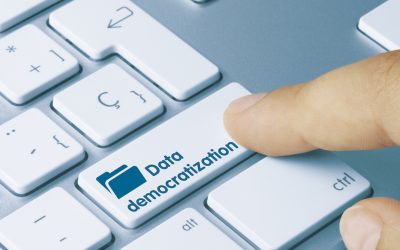
Data democratization is a big deal for a lot of companies in this day and age, as more people are becoming informed and curious about the realities and inner-workings of the companies they work for.
Further, there are a lot of top-down incentives to have data that is unified and available to all. At the same time, some companies have the fear that the release of all data to those who aren’t able to interpret it would be a negative thing for a company.
We’re here to point out the upside of data democratization for you in this article.
The Pros of Data Democratization and Unification
We’re going to start by detailing the importance of data unification.
1. No More Scattered Data
As technology advances, we’re better able to consolidate a company’s information into one place. When information is spread amongst three or four different interfaces, that means there are three or four different systems that employees have to learn.
That requires training and time to fully grasp. The presence of one information source will reduce confusion and streamline your efforts to understand that information.
2. Department Confusion
If you allow access to information at all levels of your business and contain that information to a single source, the branches of your organization will be able to communicate much more efficiently.
No longer will technical differences in one piece of software affect the understanding of data, skewing one department’s interpretation and causing a rift of understanding.
3. Inter-Departmental Insight
When you bottleneck your data and contain it to a select group of people, you miss the insights and understanding of all employees who can’t see it.
As someone in finance looks over data with a fresh set of eyes, they might notice something that could benefit human resources and vice versa. Allowing your data to be known throughout the business will certainly lead to a greater general understanding of your company by your employees as well.
4. More Informed Employees
Another reason, and possibly the reason that has sparked so much interest in data democratization, is the fact that employees want to know the state of the company that they’re looking for.
Whether the information is from finances, case studies, or elsewhere, people want to know that nothing is being held from them.
5. Consumer Trust
Finally, if you choose to be entirely democratic with your data and allow all to see, your consumers will thank you.
Customers are generally becoming more informed and making ethical-based decisions when they decide which companies to purchase from. Being transparent and allowing information to be dispersed will certainly change the way customers perceive your brand.
Want to Know More About Data?
Data democratization, first and foremost, allows your staff to actually use the data you have. This can lead to a lot of beneficial insights.
If you’re interested in learning more about how to use data, visit our site for the information you need.

